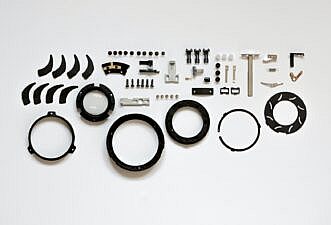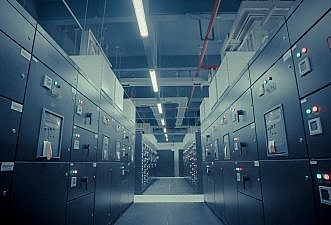DevOps and IoT are among the most popular technologies that have taken the world by storm. Naturally, you would ask: what is the connection between the two, and why are they important for my business?
Let’s begin with the definitions. DevOps merges ‘development’ and ‘operations’ while IoT refers to the ‘Internet of Things’. DevOps focuses on reducing software delivery cycle times, automating the process of testing products, integrating software, and deployment changes. It fosters a proactive IT environment where engineers can design, test, and release software quickly and consistently. On the other hand, the use cases for IoT projects come down to optimization and the quality of the end-user experience.
If someone is to invest in tech solutions, they would want the journey to be simple, resource-efficient, and result-oriented. So, delivering quickly, pushing out frequent updates, and ensuring customer satisfaction all take on a whole new meaning. Are you thinking about what this would be?
Let’s answer this next.
The Link Between DevOps & IoT
IoT is picking up pace in today’s digital economy which means you must prepare your business to adapt to changes. Achieving success comes down to speeding up time-to-market because you have to deliver value straight to the customer. IoT development platforms contribute to the development of scalable applications and services which accelerate business time-to-market due to reduced costs, delivery duration, coding, and testing.
An obstacle on the path to IoT success is the modern-day enterprise structure. How do you deal with connected devices and massive chunks of data scattered across delivery touchpoints? Bringing your users, processes, and tools together will determine whether your platform is good to go for lift-off, or you have to start from ground zero. You need a corporate environment that promotes efficiency and collaboration across all departments, and this is where you look for DevOps. It factors in quick turnaround, speed, agility, and scalability when it comes to IoT solution development.

DevOps Supports IoT
With IoT, the feedback from connected devices allows you to consistently update software. DevOps enables this and its automation methodology complements IoT projects. This is because DevOps is the automation of Agile practices. When you apply it to IoT architecture, here is how you benefit:
Continuous Integration & Continuous Deployment (CI/CD)
This is critical for ensuring that you receive the latest updates for all your connected devices. CI/CD automation is an integral DevOps process that guarantees a smooth IoT implementation.
Cross-Functionality
Cross-functional teams bring different functional expertise to the table, enabling your organization to work toward a mutual goal. This is important in a world where you must encourage nonstop innovation through creative collaboration. In the software industry, cross-functional departments enable timely deliveries. If we jump to the context of IoT applications, DevOps can easily manage cross-functionality to support the advancement of key services.
Money-Saving
Budget is often a deal-breaker for companies interested in revamping IT systems and processes. You will not face this problem if you manage IoT the DevOps way. DevOps solutions can scale back unnecessary implementation costs, allowing you to invest this money in other strategic areas. These solutions also streamline intermittent processes to maximize employee productivity and increase revenue.
The DevOps procedure even accelerates the development cycle without compromising on quality, and you can cut down on production expenses.
Security
Everyone knows just how important it is to secure hardware, software, and connectivity for IoT to function effectively. Without proper security, any connected object, such as a manufacturing bot, is vulnerable to hacker attacks. Use DevOps tools for security testing to minimize exposure of the points that exchange sensor data. By design, security also boosts the security of the connected system. Then, the system facilitates regular testing that improves the security of connected devices in a network.
Reliability
DevOps seeks to enhance application efficiency and reliability in any business scenario. This lessens the need for coding, enabling teams to focus more on the automated configuration of connected components in the system.
Release Cycles
DevOps integration makes it easy to meet application delivery deadlines. You can use DevOps metrics lead time to evaluate the speed at which the system deploys your application after commencing work.
A Competitive Edge
Imagine a situation in which your car engine is sputtering. When you take it to a repair shop, the mechanic must conduct tests to identify the source of the noise and decide how to resolve the issue. What if you use a sophisticated vehicle equipped with sensors and a communications tool that conveys information to the repair shop or a mobile application? It alerts you to the problem promptly and notifies the mechanic so that they can come up with a solution before you arrive.
In the same way, DevOps and IoT help you go from reactive behavior to proactive measures.
Not surprisingly, customers want this type of service that alleviates their pain points. Tech teams are under pressure to deliver, and managing projects is just the tip of the iceberg. Luckily, you can fulfill customer expectations by using DevOps to execute better and deliver faster. Unlocking business value is a matter of applying the right DevOps techniques and principles to support your IoT program. This brings about continuous deployment that helps your service delivery teams engage consistently with users and create incremental value as they progress. So, you do not sell a product, but a service that makes it worthwhile for a customer to work with you.

Why DevOps For IoT?
IoT represents a sustainable platform that creates opportunities for businesses looking to connect smart devices and control them via Big Data solutions. Doing so offers performance efficiency, valuable insights, and economic rewards in the long run.
From connected home hubs, remote door locks, and application-controlled appliances, everything you see around you is IoT. Whether it is for enterprise everyday use, IoT can do so much for us and the IT industry must make the most of this opportunity. Let’s see how they can do so with DevOps.
- Infrastructure
Nearly every person in the world connects systems to the cloud. This makes it possible to install and update software in devices remotely which helps with WFH programs especially during uncertain times like COVID-19.
- Software
The software or program that you install on the hardware defines your system’s functionality. So, if functionality calls for changes, you have to update software instead of making complex mechanical or electrical modifications.
- Prototyping
In addition to connecting over various transportation layers and protocols, devices should support complex configurations in an IoT project lifecycle. Building IoT applications and rolling out new product features in real-time is not simple. Such an environment also brings about small processors, low memory, and network bandwidth that hinder rapid prototyping.
IoT DevOps addresses these issues by leveraging monitoring tools, alerts, and cognitive automation that encourage engineers, QA, and infrastructure teams to strive for continuous improvement.
- Interoperability
IoT applications often integrate multiple hardware and software configurations. This can complicate performance, security, and connectivity testing for multiple devices. What’s more, engineers have to test these configurations before deploying them to production. Using automated testing methodologies as part of your DevOps implementation will provide your QA with test coverage across these configurations. Any service virtualization efficiencies that do arise as part of the automation process also assist with managing change.
- Revenue
Regardless of the technology you choose, the purpose of running a business is to make profits. IoT is relevant here because it creates possibilities for you to consider different business models especially if you are an SMB or just starting a venture. By going the DevOps route, you can continuously deliver the latest software updates that are sure to generate revenue rather than just sell one-time products.
Conclusion
DevOps, cloud computing, edge computing, blockchain, IoT, AI, and Machine Learning are transforming the way we work. They are gaining immense popularity as businesses look to work smart, which means investing in promising technologies. IT leaders and experts are leading the way as they debate on solutions that provide performance, security, reliability, and high availability (HA). You will almost always find the above-mentioned platforms at the forefront of these discussions.
We hope you enjoyed this blog post. Feel free to check out our other articles that provide equally useful information here. If you’d like, we can even recommend personalized solutions to manage your IT in the cloud. Just get in touch with us, and we will do the rest.





